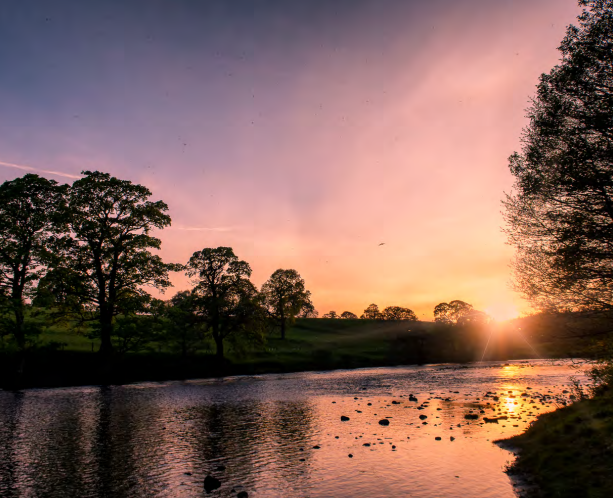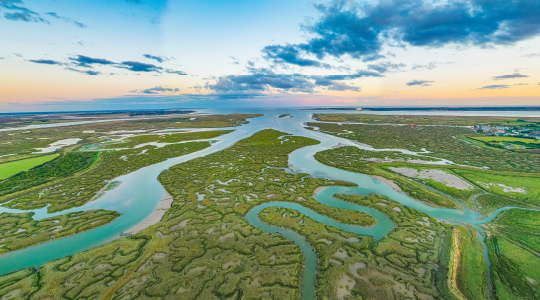Barnard Castle - Local Action
Hello Barnard Castle
Thank you to everyone who attended our event.
Working hard with partners and local people in their communities, we are restoring and regenerating our natural environment, creating an even better place to live and work through our local actions.
Our Local Environment. Our Ambition. Our Local Action.
This year saw pipelaying on a £155m Project Pipeline to upgrade the water network.
- County Durham and Tees Valley will see a total of 57km of new water mains laid from Lartington to Gainford, and across to Shildon and Long Newton, securing reliable and resilient water supplies for around 200,000 customers.
- Work is due to start on the last part of the project’s 32km first phase. This involves crossing the A688 west of Town Pasture Lane at Stainton Grove, Barnard Castle and will impact road users.
- While the majority of the work will be carried out under three-way lights, the crossing will require a weekend road closure from 7.00pm on Friday 13 September to 6.00am on Monday 16 September.
- The traffic lights will be in operation either side of the closure dates, from Monday 9 September and Friday 20 September.
- An official diversion route, approved by Durham County Council and designed to accommodate vehicles of the same size or larger, will be signposted, and advance notices will be in place for two weeks ahead of the closure. These will point people travelling to and from the West Auckland area to alternative routes via Darlington and the A67.
- Alternative bus service provision over the weekend is being planned.
- This crossing represents the last time we will have to impact on the area’s roads as part of the 32km first phase of this project.
- The one remaining road that the pipeline needs to cross is the A68 Bildershaw Bank, south of West Auckland, but the intention is to use trenchless engineering to avoid working in the road.
The River Tees catchment has a number of areas where improvements to river water quality are needed, enabling them to meet Good Ecological Status, a classification given as part of the Water Framework Directive.
- We have been investing at our sewage treatment works to improve the quality of treated wastewater flowing into the river. But we believe that we must move towards more sustainable catchment and nature-based solutions, and not rely on concrete and chemicals which cost our customers money and have high carbon emissions.
- That’s why we’ve established the Thriving Catchments initiative, and are working with The Rivers Trust (national), our local Tees Rivers Trust, Durham Wildlife Trust and other local partners and farmers and land managers to look at managing pollutants in the Tees catchment before they get to the river.
- This will also include investigating sources of pollution throughout the Tees which also impact drinking water sources for our abstraction upstream of Stockton at Darlington.
- We continuously monitor water quality to better understand how storm overflows and wastewater treatment plant discharges affect our local environment. This helps us identify areas where improvements are needed. By doing this, we can also see how actions taken by others upstream affect our water, allowing us to develop strategies that protect and improve the quality of our rivers, lakes, and streams.
- Over the next 10 years, Barnard Castle will have 12 monitors deployed to assess the impact of NWL assets in the area.
Our goal is to prevent pollution and sewage from entering rivers and seas across our region.
- Storm overflows are an important part of our wastewater network because they protect customers’ homes and the environment. They operate automatically as a relief system during heavy rain or storm conditions, or if the sewers are overwhelmed because of more water or blockages and reduce the risk of flooding to streets, homes, and businesses.
- In our next investment plan 2025 to 2030, we want to invest £4.5bn across our business - our biggest ever package to improve water and wastewater services – as we work to reduce the use of storm overflows and improve bathing waters.
- Watch our storm overflow information video (opens new window).
- At the end of April, we launched our digital interactive map (opens new window) to show up-to-date storm overflow information across the region. A video about this can be viewed here (opens new window).
- Information on our plan for Storm Overflows can be viewed on the national storm overflow interactive map (opens new window).
Septic Tanks have been identified as treatment solutions that require necessary upgrades to allow us to improve water quality across our local areas.
- They currently provide primary treatment only; the goal is to provide alternate solutions at all of these sites to provide secondary treatment.
- Various solutions have been considered going into 2025, showing the real world impact and the wider environmental benefit, some of these solutions are:
o Nature-based solutions (wetlands/vertical flow reedbeds).
o Package sewage treatment works.
o Transfer solutions (diverting flows to existing networks).
The Branch Out fund supports local projects that protect local ecosystems by building their resilience to climate change – bringing benefits to local people.
- The link between health and the countryside is well known and many of the Branch Out projects will encourage people to be outside in nature. Enhancing and linking habitats will help local flora and fauna be better placed to deal with climate change.
- If you, or your organisation, are involved in a project doing this, then the Branch Out Fund might be able to help you! Applications for grants of anywhere between £1 - £10,000 are very welcome.Read the guidance notes on the sorts of projects that qualify for grant funding.
- Email applications to branchout@NWL.co.uk
We’ve been enhancing the natural environment at our Barnard Castle Sewage Treatment Works.
This includes improving grasslands, creating woodlands, and installing insect houses and bat boxes to support local wildlife. Part of this was done through our partnership with Durham Wildlife Trust.
Saving water protects our local environment by limiting the amount of water we must remove.
- We will be encouraging local people to use water wisely and promoting the benefits of water meters.
- A water meter could reduce the amount of water you use by up to 20% saving you an average £264 a year on your bill.
- To find out if a water meter is right for you, why not try our water usage calculator to see if it can save you money.
Your drinking water is supplied from Lartington Water Treatment works
Via Lartington Service Reservoir; Lartington Water Treatment works is supplied from storage reservoirs located in Upper Teesdale
Even after our planned big investments we still expect bills in the North East to be the lowest in England.
- We know our communities are facing a cost-of-living crisis with food, housing, transport, and other bills going up.
- We are committed to helping those that need it most. If you or anyone you know is struggling to pay their bills, please talk to us. There are lots of ways we can help.
- Try our eligibility checker to find out which of our financial support schemes you may be eligible for.
Are you passionate about caring for our local waterways and making a difference in your community? If you are then why not become a Water Ranger?
- Water Rangers are an enthusiastic group of local volunteers who roll up their sleeves and take positive local action by reporting any issues and notable wildlife they see in and around our local rivers and streams.
- Don’t delay, email waterrangers@nwl.co.uk to join today.
We think it’s important to give back to make a positive impact in our local communities.
- All our team at Northumbrian Water are encouraged to volunteer to support community groups and charities through our Just an Hour scheme.
- This important initiative gets our teams out in the communities we serve, putting their shoulders to the wheel of great causes - people choose causes that resonate with them personally - for at least 15 hours a year.
- Find out more about Just an Hour (opens new window).
Find out more
Are you sure?
Changes are waiting to be saved


